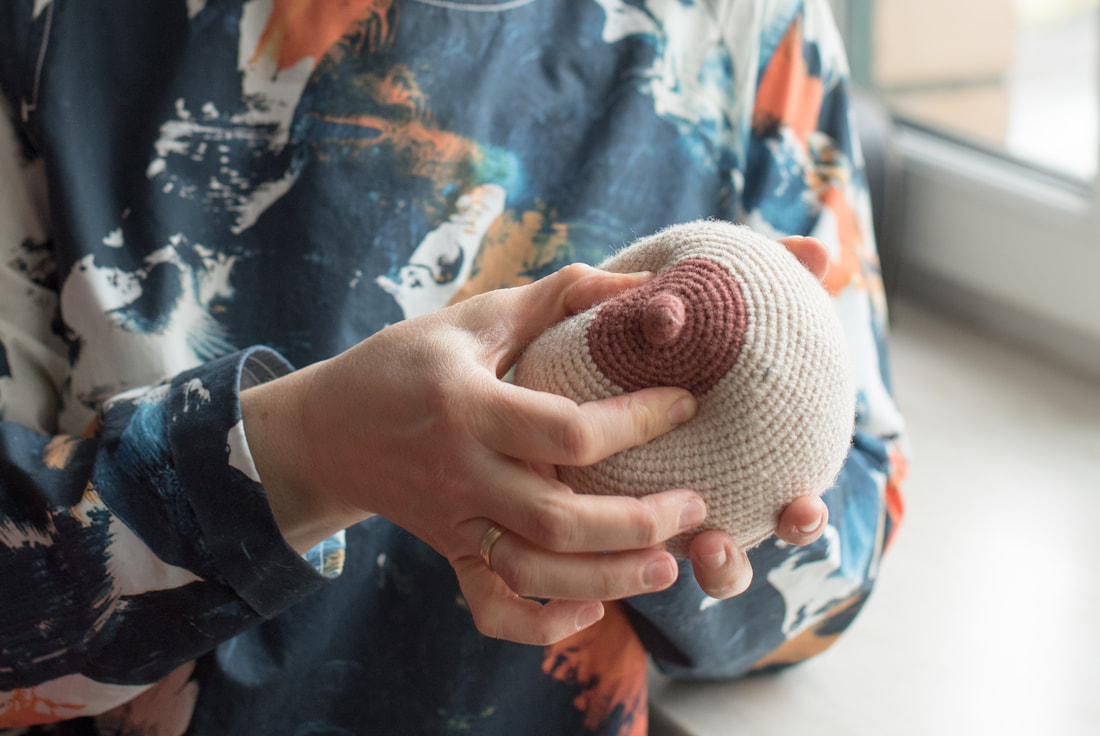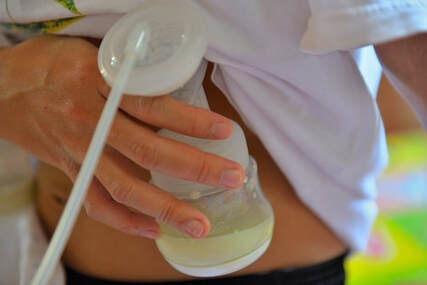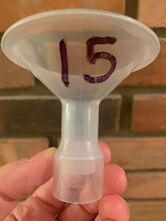 You may be wondering if the time and cost of an appointment with a Lactation Consultant is worth it. Before we start, I want to state that in this blog, I am referring to the gold standard in lactation, the International Board Certified Lactation Consultant (IBCLC). The term “lactation consultant” alone can be used by many individuals with less training. These other professionals are also invaluable in educating and supporting new parents. The IBCLC has the most extensive training. Going into this topic requires another blog for another day. An IBCLC consultation is fantastic even if things are going well. I recommend everyone has one consultation in the early weeks to get off to a great start. Most people are in the hospital for 36 hours to 4 days. Only a small portion of that time is devoted to working on feeding with expert help. New parents are also exhausted and this is a hard time to learn. You might have taken a prenatal breastfeeding class and that really puts you ahead but can’t replace on-the-job learning with your new bundle of joy! There is a huge gap in education therefore after leaving the hospital or birthing center. Here is just a preview of some topics and questions covered in a consultation:
The list above is not exhaustive. I can’t tell you how many parents have relayed to me that they stopped breastfeeding because they werent sure how to know if their baby was getting enough milk. I also hear many parents stop when they struggle with perceived low milk supply. Sometimes we discuss it further and discover that they actually had a normal milk supply but they did not know this. They didn’t know what to expect or may have been misled by social media. And others could have increased their milk supply with the right support.
Experienced, qualified support from an IBCLC is invaluable. Support of the right kind from family and friends is also critical in helping a new parent reach their feeding goals. We can’t do this alone. So what exactly does an IBCLC do in addition to all this education? What happens in a lactation consultation?
All my appointments also come with 2 weeks of follow-up messaging via a secure platform. Most IBCLC’s will include either a week or two of follow up support as well. Many of my clients will still sometimes reach out after this time with simple questions or concerns. I am happy to continue to answer questions. Having reliable support has been shown to be absolutely essential to success in breastfeeding. If there is a complicated question or I can’t answer the question without a new evaluation, I will let people know this to give them the opportunity to schedule an appointment for the best care. Simply understanding what is normal and what isn't can really put your mind at ease when you are nursing your new baby. It can allow you to enjoy your nursing relationship. The IBCLC evaluates the dyad (parent and baby) and is the only healthcare provider that cares for two people together. Breastfeeding is natural but it is a learned skill for the baby and the parent. Having expert help in your corner can make a huge difference in your success and experience. An appointment with an experienced, qualified IBCLC is always worth way more than it will cost. A great planning strategy can be to ask family or friends to cover the cost of a lacation visit as a baby shower gift. Many insurances will also cover lactation. See this link below for more about your rights to lactation coverage. Benefits for Breastfeeding Moms: Understanding Health Coverage of Breastfeeding Support and Supplies ~Cathy Walker, MA, RN, IBCLC
0 Comments
You may have landed here because you think your milk supply is low. And it might be. But there is also a chance your milk supply is normal, and you don’t know it! I'm an IBCLC and passionate about bringing you answers and support. International Board-Certified Lactation Consultants (IBCLCs) are the experts in all thing's lactation, breastfeeding and infant feeding. We are the Gold Standard in lactation care. Let's dive in. If you are evaluating your milk supply based on what you can pump, stop and check your equipment. Is your pump good quality and working for your breast tissue? Has your flange size been optimized? Both factors greatly affect milk supply. *Don’t expect a hands-free wearable pump to create a full milk supply. If you are evaluating your milk supply based on your baby’s weight gain…stop again. If your baby is doing a great job, weight gain can tell us a lot about breast milk supply. But if your baby has a challenge removing milk, you can have a normal or even a robust milk supply and have a baby who is not gaining weight adequately. Now let's get into how the milk is made! Lactation or breast milk production is maintained by regular removal of milk and stimulation of the nipple, which triggers prolactin and oxytocin release. This means Effective removal of breast milk. We need our babies to be latching deeply, comfortably and frequently to build our supply. If we cannot breastfeed, then a high-quality pump can take the place of the baby to build supply. How much milk expression is needed? A newborn usually nurses 8-12X every 24hr. If we are pumping, aiming for a similar regimen is a good idea especially in the early weeks after birth. You can pump every 2hr during your waking hours and every 3h-4hr at night to reach 10X every 24hr. Pumping for 15-20 minutes per session is sufficient. If you have more questions or are struggling with supply issues, schedule an appointment with me to discuss your situation. Factors that can lower milk supply: 1. Not pumping or nursing at least 8-12 times every 24hr 2. A stretch of longer than 6hr between nursing or pumping in the early weeks 3. Pain while pumping or nursing. 4. Incorrect flange fitting. (Not everyone has pain with the wrong size) 5. Poor quality pump. There are a lot of pumps out there that are just not very good at removing milk. Fortunately, there are also some excellent choices that do a great job for most people. Reach out to your IBCLC for advice. 6. An extra stressor in your life (big life change, death in family, natural disaster) 7. Significant lack of sleep (you can't sleep when the baby is sleeping are run down) 7. Physical illness 9. Retained placenta (usually this will cause vaginal bleeding beyond what is expected or heavy bleeding and possibly clots. Call your OB/GYN right away if you experience this). 10. There are also some medical conditions associated with lowered milk supply. Discussing these is outside the scope of this blog. Work with your IBCLC to determine if there is a medical reason contributing. A one-on-one appointment with me can help you figure all this out and arrive at a workable plan for your family. What is a normal milk supply? If you are nursing 8-12 X every 24hr and your baby is gaining just over an ounce a day or just over 2lb a month in the first 4 months of life, then you have a normal milk supply, and your baby is getting it! If you are only pumping (not nursing), then you should expect to pump enough milk to meet your baby’s needs by 10-14 days after birth. Pumps are not as good at removing milk from our breasts as babies, so it takes a bit of time. If you are nursing 8+ every 24hr and pumping in-between feedings a normal amount of milk to express would generally be 15.-2oz per pump session (yes, both breasts). Those crazy Instagram posts full of packed freezers are not normal. If you pump instead of nursing your baby, expect to express about an average feeding for your baby. A 2-month-old baby often would take between 2.5-4oz per feeding. A 1-month-old baby usually eats between 2-3 oz every 2-3 hours in week 2-4 of life. Tips to improve milk supply:
For most people, regular Effective expression will be enough to build a healthy milk supply. If you have tried all these strategies and still are struggling, there is still a lot to be done to improve your supply. You will need the expert assessment of an IBCLC to identify the cause(s) and recommend a care plan for you to see more change. Don't struggle alone. With all the factors involved, having an IBCLC be your detective is the fastest way to the answers. Cathy Walker, MA, RN, IBCLC April 1, 2023 No! Breastfeeding should not hurt! Myths regarding nipple pain: “Breastfeeding hurts in the beginning.” “Your nipples will toughen up.” “Just grin and bear it.” “Your baby is gaining weight so nursing must be going great!” If you experienced several poor latches in the first week after birth and sustained some minor nipple damage, this can be normal. If it heals and does not recur, then it likely was just everybody learning where things go. Today, I’m discussing continuing nipple pain during the feeding, or after the feeding with and without visible nipple damage. Chronic pain leads to breastfeeding cessation. Don’t suffer! Reach out for skilled support. Schedule an appointment below. Why is a deep and comfortable latch important?
What should I do right now? One option is to pump, bottle feed and allow your nipples to fully heal. This may take up to a week. At the same time, Book a consultation with an IBCLC to determine the cause of your pain and move the needle in the right direction. What is happening?
An International Board Certified Lactation Consultant (IBCLC) is trained to assess for the cause and recommend actionable steps to get you pain free. * In the setting of high milk supply, a baby who is not latched correctly can still sometimes transfer enough milk to gain weight adequately. This may continue for up to 6-12 weeks. At this point, the milk supply regulates to a slightly lower level (still plenty for your baby). When this occurs, this baby who was gaining weight normally may begin to falter. They no longer have a waterfall of extra milk just falling in. When you meet with me, I can assess whether or not the feeding and latch are functional. Is your baby efficient and are you comfortable? We consider this along with weight gain for the full picture. Pain is a signal to your body that something is wrong. This is very true when breastfeeding. Reach out for the support and knowledge you deserve and start feeling better! Happy Nursing! Cathy Walker, IBCLC April 1, 2023
|
AuthorCathleen Walker Archives
September 2023
Categories |

























 RSS Feed
RSS Feed